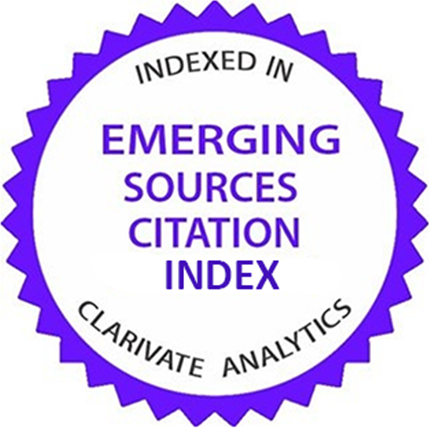Comparison of Glasgow Coma Scale with Physiologic Scoring Scales in Prediction of In-Hospital Outcome of Trauma Patients; a Diagnostic Accuracy Study
Abstract
Introduction: Limitations of Glasgow coma scale (GCS) led the researchers to designing new physiologic scoring systems such as revised trauma score (RTS), rapid acute physiology score (RAPS) and rapid emergency medicine score (REMS), and worthing physiological scoring system (WPSS). However, it is not yet known whether these models have any advantage over GCS.
Objective: The present study attempted to compare the values of 4 physiologic scoring systems including RTS, RAPS, REMS and WPSS with GCS in predicting in-hospital mortality of trauma patients.
Methods: The present diagnostic accuracy study was performed on trauma patients presenting to emergency departments of 4 hospitals in Iran throughout 2017. Patients were clinically evaluated and were followed until discharge from hospital. Finally, the status of patients regarding mortality and poor outcome (death, vegetative status, severe disability, and moderate disability) was recorded and predictive value of GCS was compared with physiologic scales.
Results: Area under the ROC curve of GCS in prediction of in-hospital mortality was not significantly different from that of REMS (0.89 vs. 0.91; p=0.298), RAPS (0.89 vs. 0.88; p=0.657), and WPSS (0.89 vs 0.91; p=0.168) but was significantly more than RTS (0.89 vs. 0.85; p=0.002). In addition, area under the ROC curves of GCS, REMS, RAPS, WPSS and RTS in prediction of poor outcome were 0.89, 0.88, 0.88, 0.91, and 0.81, respectively. Area under the ROC curve of GCS in prediction of poor outcome did not differ from area under the ROC curves of REMS (0.89 vs. 0.88; p=0.887), RAPS (0.89 vs. 0.88; p=0.601) and WPSS (0.89 vs. 0.91; p=0.113) but was significantly higher than RTS (0.89 vs. 0.81; p<0.0001).
Conclusions: Findings of the present study indicated that GCS is still the best method for evaluating injury severity and trauma patients’ outcome in the emergency department; because it is easier to calculate and assess than many physiologic scales and it has a better performance in predicting in-hospital mortality and poor outcome compared to RTS.
2. Leitgeb J, Mauritz W, Brazinova A, Majdan M, Janciak I, Wilbacher I, et al. Glasgow Coma Scale score at intensive care unit discharge predicts the 1-year outcome of patients with severe traumatic brain injury. Eur J Trauma Emerg Surg. 2013;39(3):285-92.
3. Baratloo A, Mirbaha S, Bahreini M, Banaie M, Safaie A. Outcome of trauma patients admitted to emergency department based on full outline of unresponsiveness score. Adv J Emerg Med. 2017;1(1):e2.
4. Baratloo A, Shokravi M, Safari S, Aziz AK. Predictive Value of Glasgow Coma Score and Full Outline of Unresponsiveness Score on the Outcome of Multiple Trauma Patients. Arch Iran Med. 2016;19(3):215-20.
5. Gill M, Martens K, Lynch EL, Salih A, Green SM. Interrater reliability of 3 simplified neurologic scales applied to adults presenting to the emergency department with altered levels of consciousness. Ann Emerg Med. 2007;49(4):403-7. e1.
6. Balestreri M, Czosnyka M, Chatfield D, Steiner L, Schmidt E, Smielewski P, et al. Predictive value of Glasgow Coma Scale after brain trauma: change in trend over the past ten years. J Neurol Neurosurg Psychiatry. 2004;75(1):161-2.
7. Roorda J, Van Beeck E, Stapert J, Ten Wolde W. Evaluating performance of the revised trauma score as a triage instrument in the prehospital setting. Injury. 1996;27(3):163-7.
8. Gabbe BJ, Cameron PA, Finch CF. Is the revised trauma score still useful? ANZ J Surg. 2003;73(11):944-8.
9. Duckitt R, Buxton-Thomas R, Walker J, Cheek E, Bewick V, Venn R, et al. Worthing physiological scoring system: derivation and validation of a physiological early-warning system for medical admissions. An observational, population-based single-centre study. Br J Anaesth. 2007;98(6):769-74.
10. Olsson T, Terént A, Lind L. Rapid Emergency Medicine Score: a new prognostic tool for in‐hospital mortality in nonsurgical emergency department patients. J Intern Med. 2004;255(5):579-87.
11. Goldhill D. Preventing surgical deaths: critical care and intensive care outreach services in the postoperative period. Br J Anaesth. 2005;95(1):88-94.
12. de Pennington J, Laurenson J, Lebus C, Sihota S, Smith P. Evaluation of early warning systems on a medical admissions unit. J Intensive Care Soc. 2005;6(2):19-21.
13. Williams E, Subbe C, Gemmell L, Morgan R, Park G, McElligot M, et al. Outreach critical care—cash for no questions? Br J Anaesth. 2003;90(5):699-702.
14. Olsson T, Lind L. Comparison of the Rapid Emergency Medicine Score and APACHE II in Nonsurgical Emergency Department Patients. Acad Emerg Med. 2003;10(10):1040-8.
15. Olsson T, Terent A, Lind L. Rapid Emergency Medicine Score Can Predict Long-term Mortality in Nonsurgical Emergency Department Patients. Acad Emerg Med. 2004;11(10):1008-13.
16. Hajian-Tilaki K. Sample size estimation in diagnostic test studies of biomedical informatics. J Biomed Inform. 2014;48:193-204.
17. Imhoff BF, Thompson NJ, Hastings MA, Nazir N, Moncure M, Cannon CM. Rapid Emergency Medicine Score (REMS) in the trauma population: a retrospective study. BMJ Open. 2014;4(5):e004738.
18. Ghelichkhani P, Esmaeili M, Hosseini M, Seylani K. Glasgow Coma Scale and FOUR Score in Predicting the Mortality of Trauma Patients; a Diagnostic Accuracy Study. Emergency. 2018;6(1):e42-e.
19. Baratloo A, Hosseini M, Negida A, El Ashal G. Part 1: simple definition and calculation of accuracy, sensitivity and specificity. Emergency. 2015;3(2):48-9.
20. Bur A, Herkner H, Vlcek M, Woisetschläger C, Derhaschnig U, Delle Karth G, et al. Factors influencing the accuracy of oscillometric blood pressure measurement in critically ill patients. Crit Care Med. 2003;31(3):793-9.
| Files | ||
| Issue | Vol 4 No 4 (2020): Autumn (October) | |
| Section | Original article | |
| Keywords | ||
| Decision Support Techniques Glasgow Coma Scale Multiple Trauma Patient Outcome Assessment | ||
| Rights and permissions | |

|
This work is licensed under a Creative Commons Attribution-NonCommercial 4.0 International License. |










